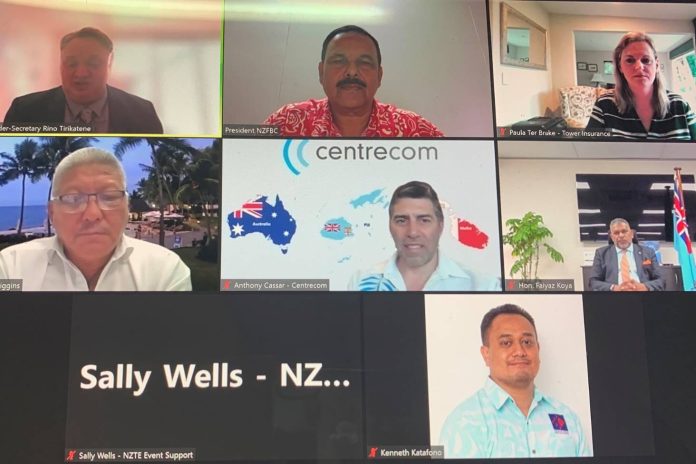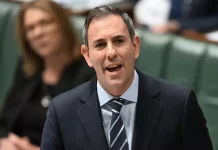Economic recovery was the focus of a recent online conference involving Fijian and New Zealand trade organisations.
Hosted by the New Zealand Fiji Business Council, the webinar was held in conjunction with the Fiji Consulate General and Trade Commission (New Zealand and Australia), the Fiji High Commission in Wellington, and New Zealand Trade and Enterprise.
Fiji has opened its borders and as of 01 May, fully vaccinated visitors to Fiji will no longer need to take a Covid-19 pre-departure test.
The webinar saw leading industry figures share their views, including New Zealand MP and parliamentary undersecretary for trade and export Rino Tirikatene; Fiji’s Minister of Commerce, Trade, Tourism and Transport Faiyaz Koya; NZBFC president Chandar Sen, and executives from case study ventures.
“Travel is important for trade between the two countries, and I can report the pathway is now clear,” said Sen, who recently travelled for a business visit to Fiji.
Tirikatene spoke on the importance of trade with Fiji and the New Zealand government’s strategy in this area.
“A focus of our current strategy is refreshing key trade relationships, including diversification,” Tirikatene told webinar participants.
“We must remember that the Pacific is a major market for New Zealand, with significant opportunities to grow trade and build back better in the post pandemic world.
“Fiji is among our top 20 trading partners on par with France and ahead of even much larger economies such as Mexico or Brazil.”
Tirikatene said he would still like to see Fiji join the PACER Plus free trade agreement which includes members of the Pacific Islands Forum, Australia and New Zealand.
The agreement came into effect late 2020 without the backing of Papua New Guinea and Fiji. Both countries declined to join, citing a lack of benefits with the removal of tariffs as one of the sticking points.
Tirikatene said it was not only about reducing tariffs, but also harmonising standards across the region to create a more transparent operating environment, reducing red tape and assisting the development of new export opportunities.
Despite the pandemic Tirikatene said there had been “considerable bright spots” in recent trade, including Fiji’s goods exports to New Zealand growing by more than 20% to $70 million (US$45 million) in the year to September 2021.
“I am confident, there is plenty of stuff to regrow our trade and investment into Fiji.”
Two-way trade between New Zealand and Fiji had been running at around $1 billion (US$643 million) per annum including New Zealand exports to Fiji of $640m (US$411 million).
Total trade fell to $543m (US$349 million) in the year to September 30, 2021, as a result of the pandemic and associated collapse of the tourism sector with services exports falling 84% during this period.
Faiyaz Koya, Fiji’s Minister of Commerce, Trade, Tourism and Transport, spoke of global structural changes which had been accelerated by the Covid pandemic.
“Covid-19 has highlighted the importance of having a resilient supply chain, which is now a priority for businesses and countries,” he said.
Koya outlined current areas of focus for attracting investment which include business process outsourcing, manufacturing, infrastructure development, agriculture and renewable energy.
Fiji offers tax incentives for certain investments and presently a 200 percent tax deduction on the development of, or upgrade of, online shopping websites with integrated payment platforms.
Both government speakers spoke about future growth opportunities in business process outsourcing (BPO).
BPO has evolved from traditional outsourced call centres to sophisticated customer service and business support centres.
Services available include payroll, accounting, telemarketing, data recording, social media marketing, customer support, IT support.
Koya said Fiji was on the move in this growing sector, putting a challenge up to other destinations such as India and the Philippines, presenting a clear cost, cultural and time zone advantages.
He said there was a growing demand for near-shoring of outsourcing services, “making Fiji a near-shore Mecca because of our proximity to New Zealand and Australia”.
Tirikatene said the growth of the Fiji BPO sector would generate significant opportunities for investment while also helping New Zealand companies get access to quality Fijian skills closer to home.
Suva-based CentreCom is a Fiji-Australian joint venture BPO business, half owned by Fiji Airways, employing 350 workers in Fiji.
The company was one of four case studies presented at the webinar.
Managing director Anthony Cassar said the Fiji government had provided considerable support to grow the sector, including in positioning BPO careers within the education framework.
“A job in business process outsourcing is now seen as a strong job and an actual career path, not just a stepping stone to something else,2 he said.
“Fijians are very happy people and very natural at customer service.”
Cassar said Fiji was on the map now through some of the largest Australian and New Zealand companies using its services.
Paula ter Brake, Tower Insurance Pacific Islands managing director, highlighted the workforce and education system in Fiji, which produced some 5000 graduates annually, as a key benefit.
“The culture is second to none, and we experience good long-term tenure of our staff,” she said.
Tower, with 20 staff across two branches and more than 14,000 customers insured, generates $17-20m (US$10.9 million- US$12.8 million) revenue annually in Fiji. It also runs a 40-seat internal business process outsource unit doing work in claims, administration, finance and customer service.
“Suva is a very good place to do business from in terms of its safety and reduced weather perils compared to other locations Tower operates in throughout the Pacific,” Ter Brake said.
Higgins general manager Henare Clarke spoke about the importance of community engagement and about New Zealand-owned businesses taking a long-term position regarding their investments in Fiji.
Higgins, an infrastructure services provider, has 250 employees in Fiji with Fiji Airports and Fiji Roading Authority as key clients; it is investing $10 million (US$5 million) in a new asphalt plant among a range of other initiatives.
Bringing technology and expertise to Fiji helped both the company and the economy, Clarke said.
“Nearly all of our employees are Fijian, and we bring our expertise across from New Zealand to help upskill and share our learnings.”
Traseable Solutions managing director Kenneth Katafono spoke about his firm’s success building software products for the Fiji-New Zealand agricultural trade.
The company provides digital track-and-trace solutions from farm to plate and is now used across nine Pacific Island countries.
The NZFBC will host a trade mission to Fiji in June, with sister organisation Fiji New Zealand Business Council convening a joint conference.
SOURCE: STUFF NZ/PACNEWS















